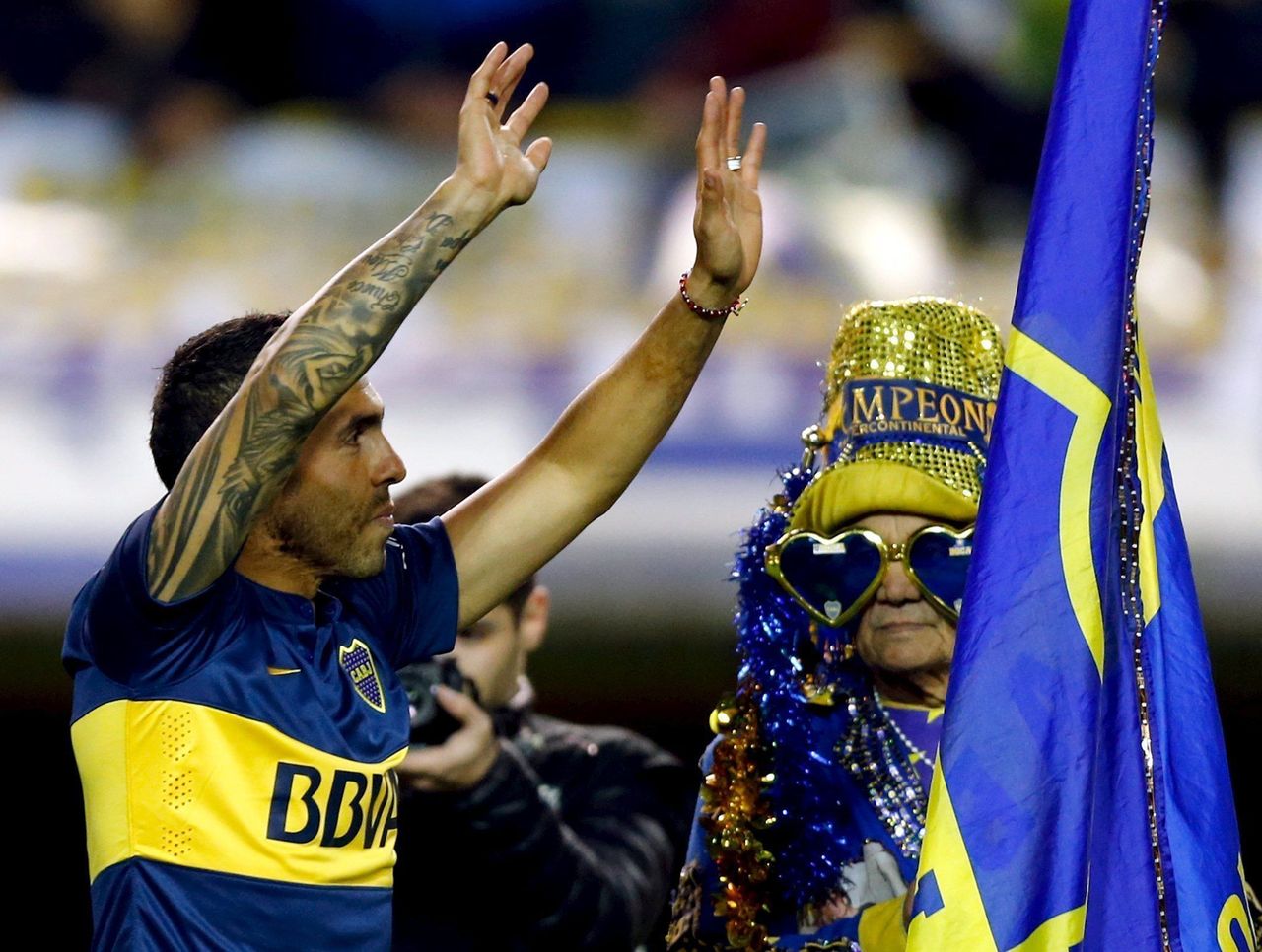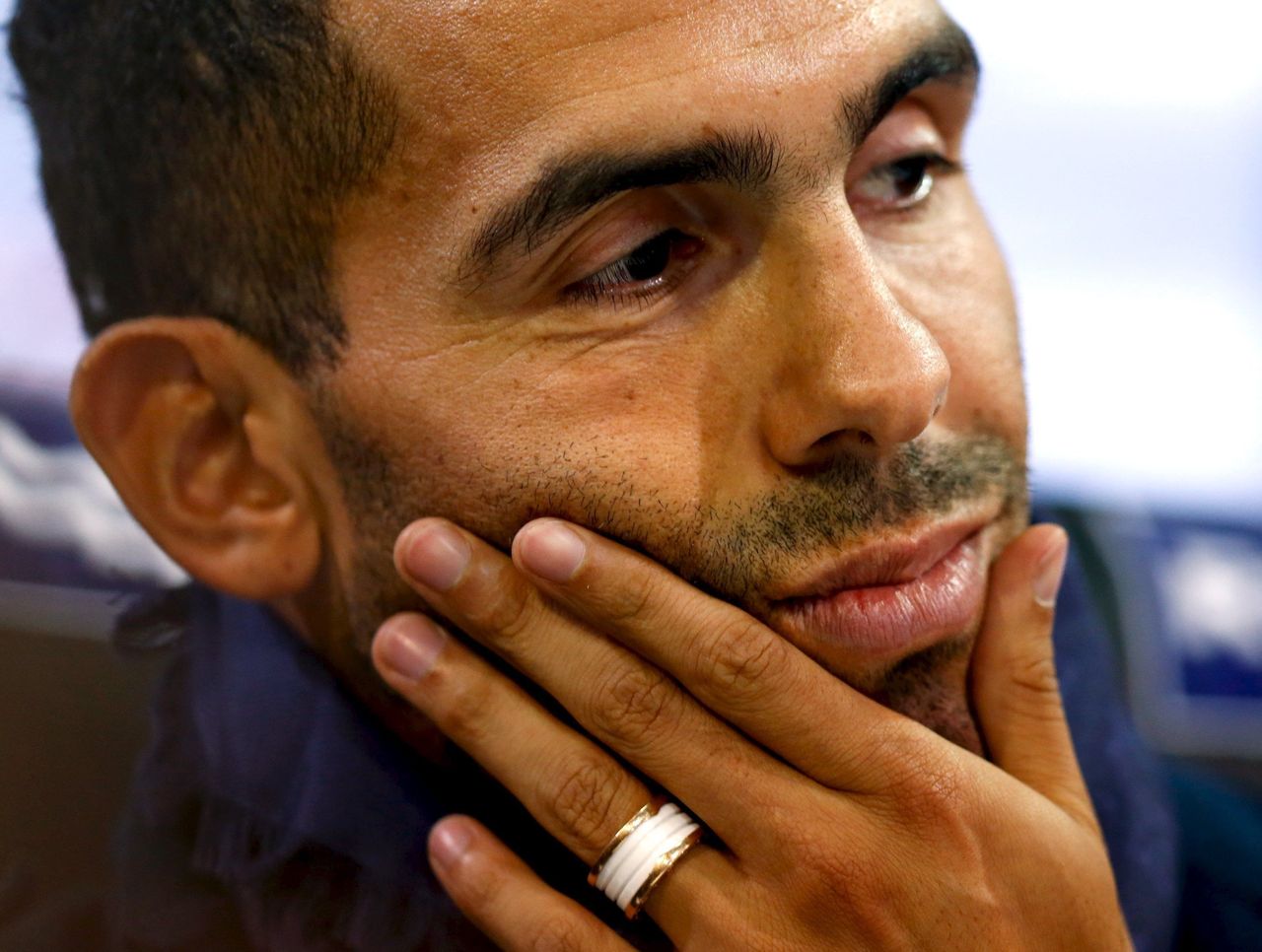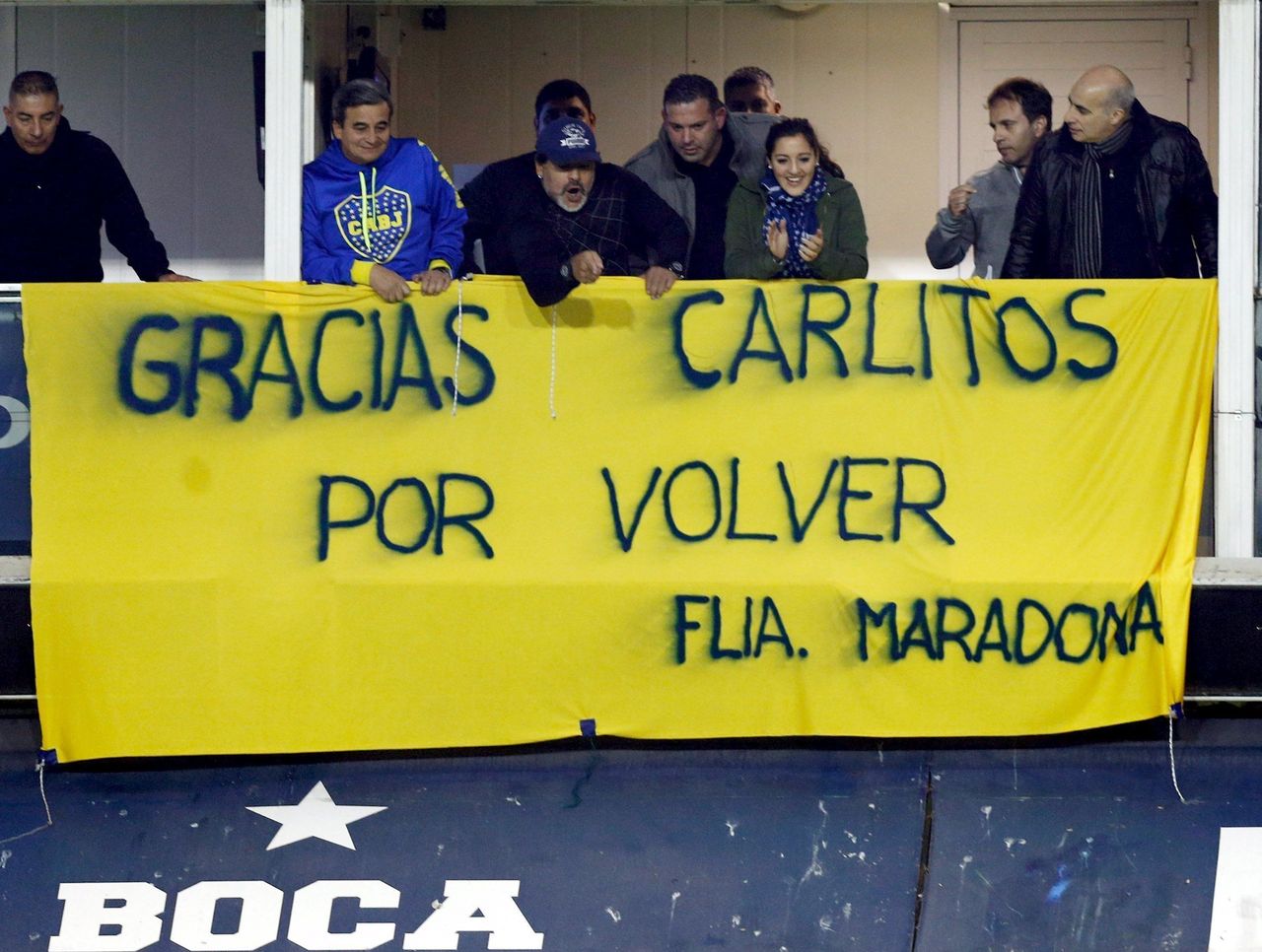Money doesn't buy happiness: Carlos Tevez's return to Boca Juniors is a reminder of what matters
Carlos Tevez's return to Boca Juniors is like the story of a boy who spent his teenage years with the love of his life, eventually went his own way to travel the planet, and finally decided to return home a decade later because he knew it was where he belonged.
If that sounds overly romantic, it's because the love between Tevez and Boca is arguably greater than the love between any player and any club.
A product of Fort Apache, a slum in Buenos Aires rife with drugs and crime, Tevez followed a path so many of South America's top players take: he captured the Copa Libertadores with his boyhood club, caught the eye of foreign teams, and went on to feature for Europe's elite and compete in the Champions League.
This, essentially, is the formula for a genius who outgrows South American football.
Once in a while, however, the virtuoso returns to the club where he was produced to bring his career full circle, and write the final chapter of his story.
That's exactly what transpired at La Bombonera on Monday, as Tevez, whose return to Boca was confirmed at the end of June, was presented in front of some 40,000 supporters, all of whom were looking to catch a glimpse of their god.

While there's nothing revolutionary about a South American player returning to where his career kicked off, Tevez going back to Boca is no ordinary transfer. It transcends football, and is a necessary reminder of the human element that sculpts the beautiful game, completely disregarding the financial component that suffocates European football all too often.
Among the myriad of poetic lines that Tevez proclaimed at his presentation, one in particular stood out.
Upon being asked how his unveiling compared to England, Italy, and Brazil, Tevez, showing off his crooked teeth with his defining smile, and to the delight of everyone at La Bombonera, replied: "Money doesn't buy happiness."
Herein lies the importance of Tevez's homecoming.
Little attention is being paid to the fact that his transfer from Juventus cost Boca €5 million, as well as juvenile player Guido Vadala, on a two-year deal, with the option to buy other players in the future. Those details are insignificant, overshadowed by the deep affection Tevez and supporters feel for Boca.
Even the slogan for the presentation trumped the details of his transfer, as supporters brought over 20,000 kilos of nonperishable food to La Bombonera. The gesture was a means of thanking the player for his return, and the food will be given to Fort Apache.
Atletico Madrid was under the impression that money could buy happiness, learning first-hand that no figure could come between Tevez and Boca.
In fact, Atleti never really stood any chance of acquiring his signature. At his presentation on Monday, Tevez revealed he had already decided to return home when he joined Juventus two years ago.
"When I went to Italy, returning to Boca was already crossing my head," Tevez said. "I thank Cholo Simeone for wanting to bring me to Atletico Madrid but I had one goal in mind: return home and I think I'm returning at my best moment, we must regain the mystique to fight for the Copa Libertadores and other important tournaments."

Before his presentation, Tevez took to Twitter to express his euphoria at returning to Boca, writing: "My heart is exploding with happiness. Thank you for putting up with the cold and for waiting for me."
Mi corazón explota de felicidad!!! Gracias por bancar el frío y por esperarme. Ya estoy en casa ?
— Carlitos Tevez (@carlitos3210) July 13, 2015
When Tevez took the pitch at his presentation, the 40,000 supporters in attendance - keep in mind that some of Europe's giants don't even average 40,000 supporters for their matches - reciprocated the elation, many of them climbing the fences that separated themselves from their deity.

Of course, Diego Maradona, who returned to Boca in a similar manner in 1995, and who is the most iconic player to ever wear the club's No. 10, was also in attendance for the presentation, acknowledging his quasi-successor with a personal banner that read: "Thank you Carlitos for returning."

Happiness was oozing from La Bombonera as Tevez paraded around the pitch and kicked balls into the terraces. It was a rare sight in a universe where those types of scenes are normally only triggered by a trophy or a big-money transfer. And sure, Tevez's return can be classified as the latter, but it's also so much more than that.
South American football is marred by an inferiority complex, stemming from the money that flows through its European counterpart, which results in its best players crossing the Atlantic Ocean. It's the reason the Club World Cup is such a massive event in the Third World: it provides a unique opportunity for its clubs to measure themselves against Barcelona, Bayern Munich, and others.
When Tevez takes the pitch for Boca, that inferiority complex is forgotten, and the happiness - rather than the financial disparity - that is supposed to surround football returns.
This is also why Tevez is held in wider regard than Lionel Messi in Argentina.
While Messi is often associated with Barcelona and Catalonia since he joined the club's academy, La Masia, at a young age, Tevez is Argentina in a nutshell: the feelgood story of a kid from the wrong side of the tracks who made it out of the slums.

In a perfect world, Tevez will win the 2016 Copa Libertadores before scoring the winning goal at the Club World Cup versus one of Europe's mammoths.
HEADLINES
- Guardiola not considering Man City exit: I'm 'excited' for future
- PSG's Safonov ended Intercontinental Cup triumph with broken hand
- Report: Maresca high on Man City's list of potential Guardiola successors
- Barcelona face potential El Clasico in Women's Champions League
- Barcelona, Lyon, Chelsea reach Women's Champions League quarters